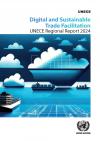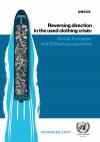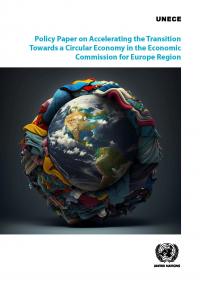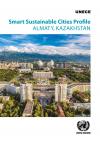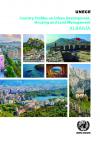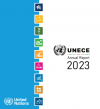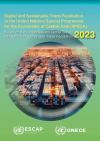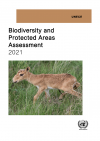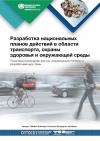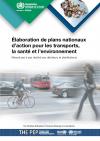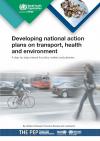Publications
Displaying Results 1 - 11 of 11
- English
The fifth United Nations Global Survey on Digital and Sustainable Trade Facilitation, jointly conducted by the five United Nations Regional Commissions and UNCTAD, offers an in-depth and comparative analysis of the implementation of 60 trade facilitation measures in over 160 countries worldwide in 2023. Aside from measures in the WTO TFA, the survey covers the implementation of cutting-edge
- English
The textile industry has evolved from a production model based on natural fibres and protectionist policies for local industry to a model where synthetic fibres have become pervasive, production has been offshored, and the speed of manufacture and distribution of products has increased rapidly. Most of the fashion industry operates under the fast-fashion model, which involves more collections per
- English
This policy paper reviews the state of play of traceability and transparency approaches in three economic sectors critical to the circular transition in the ECE region: the agrifood, garment and footwear, and minerals sectors. Moreover, it provides an overview of the challenges and opportunities for advancing the circular economy and highlights successful practices from the whole region. Lastly,
- English
Almaty has set its sights on becoming one of the leading smart and sustainable cities in the world and, since gaining independence, has made remarkable strides in developing sustainably. Despite favourable economic and demographic conditions, Almaty faces several challenges including air quality and pollutant emissions.
This Smart City Profile of Almaty helps address these challenges. It offers
- English
Albania is one of the fastest urbanizing countries in Europe, grappling with a set of unique challenges. The pattern of geographical development has led to specific challenges, including a lack of affordable housing in high-growth areas and widespread deprivations in declining areas. Albania has recently implemented a comprehensive reform package in the housing, planning, regional development and
- English
Amid multiple ongoing crises, UNECE’s 2023 SDGs status report revealed that the region was further away from achieving the 2030 Agenda for Sustainable Development than it had been a year earlier.
The 2023 Annual Report illustrates how UNECE is supporting countries to accelerate SDGs progress and respond to key sustainable development challenges, leveraging its practical normative tools and policy
- English
This report is part of a global survey effort on the implementation of trade facilitation and paperless trade measures, undertaken jointly by the five United Nations Regional Commissions for Africa (ECA), Europe (ECE), Asia and the Pacific (ESCAP), Latin America and the Caribbean (ECLAC) and West Asia (ESCWA) as well as the United Nations Conference on Trade and Development (UNCTAD).
This report
- English
This assessment was conducted between 18 June 2020 and 3 June 2021 with the objective of analyzing the developments and challenges in the management of biodiversity and protected areas (PAs) in 14 countries that carried out and completed a ECE Environmental Performance Review (EPR) under its 3rd cycle (further 3EPR) since 2014. This includes Albania (2018), Belarus (2016), Bosnia and Herzegovina
- Pусский
Европейское региональное бюро ВОЗ Всемирная организация здравоохра-нения (ВОЗ) – специализированное учреждение Организации Объеди-ненных Наций, созданное в 1948 г.,основная функция которого состоит в решении международных проблем здравоохранения и охраны здоровья населения. Европейское региональ-ное бюро ВОЗ является одним из шести региональных бюро в различ-ных частях земного шара, каждое из
- Français
Le Bureau régional de l’OMS pour l’Europe L’Organisation mondiale de la santé (OMS), créée en 1948, est une institution spécialisée des Nations Unies à qui incombe, sur le plan international, la responsabilité principale en matière de
questions sanitaires et de santé publique. Le Bureau régional de l’Europe est l’un des six bureaux régionaux de l’OMS répartis dans le monde. Chacun d’entre eux a
- English
A national transport, health and environment action plan (NTHEAP) is a key tool and mechanism for developing sustainable and healthy transport in a country. NTHEAPs provide a comprehensive and intersectoral way of planning and implementing transport, environment and health action at the national level. This manual was developed to guide NTHEAP development at the country level.


